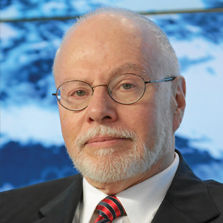
When Travelport in March 2018 disclosed an activist investor had taken a position in the global distribution system operator and planned to urge management to conduct a strategic review of its operations and holding, the news perhaps wasn't particularly shocking. After all, Travelport's share price had languished below the level of its 2014 initial public offering, it had lost agency subscribers and market share to GDS competitors, and its eNett payments joint venture was growing rapidly and seemed like a potential spinoff.
The activist investor in question, though, was billionaire Paul Singer, founder and head of hedge fund Elliott Management Corp. and its associated investment management entities. Singer's entities for decades have taken activist positions in companies, pressuring management to change course. In recent years, Singer's hedge fund has been "rewriting the activist investor playbook" by acting as "both as an engaged shareholder and a potential buyer of the whole company," as Reuters put it in 2017.
So it was with Travelport, which Evergreen Coast Capital—an affiliate of Singer's Elliott Management—formally acquired in May 2019 with partner Siris Capital Group, taking the company private. The $15.75 per-share acquisition price, valuing the deal at $4.4 billion including an assumption of debt, underwhelmed some analysts and investors, but a majority of shareholders agreed to the deal.
With a new board, new ownership and the involvement of Singer's entities, change appears inevitable, and in July the first of what could be several shoes dropped: Gordon Wilson, president and CEO of Travelport since 2011 and a 28-year company veteran, was replaced by Greg Webb, former EVP of Travelport competitor Sabre.
What's next is unclear. What is clear is that the past few years have been difficult for Travelport's performance, as its global share of GDS bookings has declined against Sabre and Amadeus, and mega travel management company CWT in 2018 sidelined Travelport in favor of those two primary GDS competitors. That followed a similar decision by Flight Centre to shift its GDS business in Australia and New Zealand to Sabre.
But it's a new regime tasked with reversing that trend, and the industry will closely watch Singer, Webb and company's attempt to do so.